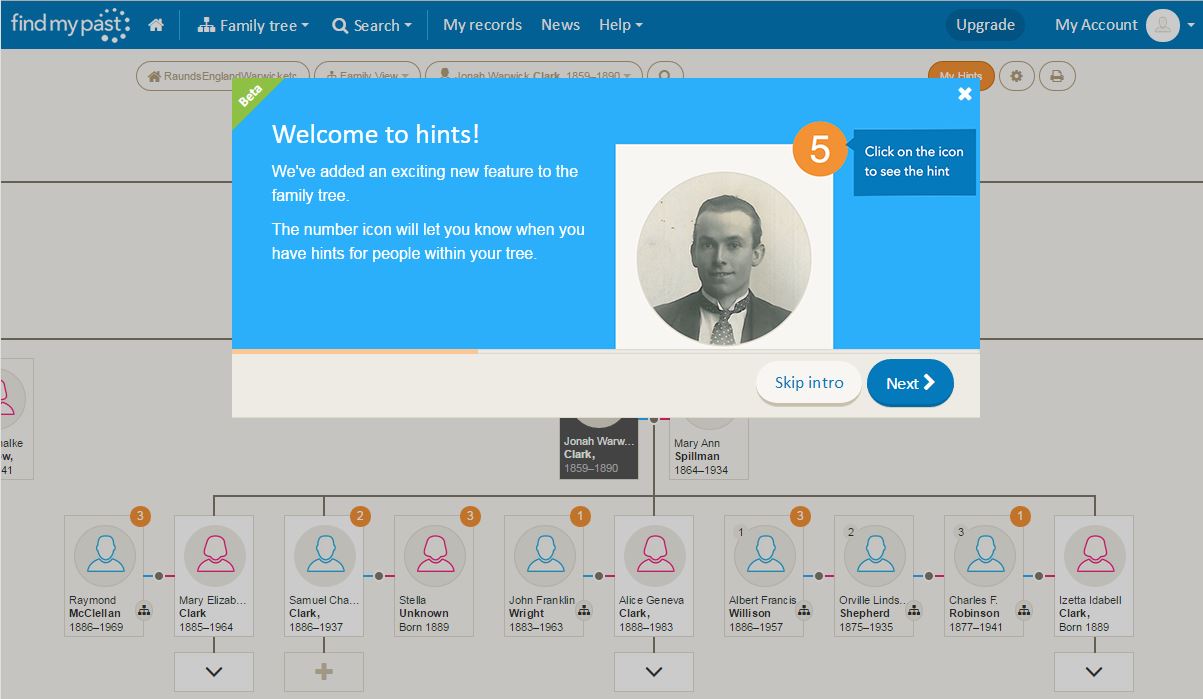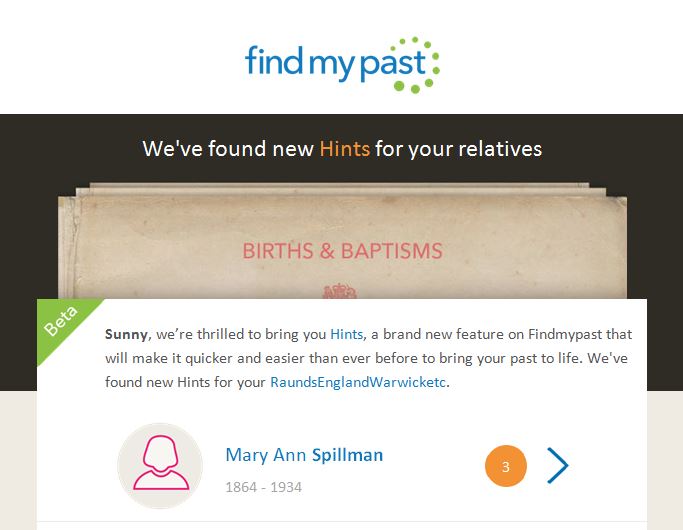by Lisa Cooke | May 26, 2015 | 01 What's New, Conferences, Digital Archives, DNA, Google, images
 Registration is now open for FREE streaming live sessions from the 46th Annual Southern California Genealogy SCG Jamboree. Sign up to watch Lisa present two free sessions on Saturday, June 6, “Google Tools and Procedures for Solving Family History Mysteries” and “Update: Google! Everything New that You Need to Know for Genealogy.” Check out the schedule below to see who else you can watch for free. Handouts will be provided!
Registration is now open for FREE streaming live sessions from the 46th Annual Southern California Genealogy SCG Jamboree. Sign up to watch Lisa present two free sessions on Saturday, June 6, “Google Tools and Procedures for Solving Family History Mysteries” and “Update: Google! Everything New that You Need to Know for Genealogy.” Check out the schedule below to see who else you can watch for free. Handouts will be provided!
Friday, June 5
FR007: Be Prepared with a Genealogy Disaster Plan – Denise May Levenick.
FR018: Five Tips for Successful Research in a New Location – J. H.”Jay” Fonkert, CG.
FR019: Genetic Genealogy and the Next Generation – Blaine T. Bettinger, PhD, JD and Paul Woodbury.
FR032: Finding and Utilizing German Church Records – Dr. Michael D. Lacopo.
Saturday, June 6
SA007: Google Tools and Procedures for Solving Family History Mysteries – Lisa Louise Cooke.
SA014: Tho’ They Were Poor, They May Have Been Rich in Records – Paula Stuart-Warren, CG, FMGS, FUGA.
SA021: No Easy Button: Using Immersion Genealogy to Understand Your Ancestors – Lisa A. Alzo, MFA.
SA033: Plotting, Scheming and Mapping Online – Cyndi Ingle.
SA035: Midwestern and Plains States Level Census Records – Paula Stuart-Warren, CG, FMGS, FUGA.
SA047: Update: Google! Everything New that You Need to Know for Genealogy – Lisa Louise Cooke.
Sunday, June 7
SU005: Family History Adhesive: Science and Simple Tech 4 Binding Families – Janet Hovorka, MLIS.
SU015: The Hidden Web: Digging Deeper – Cyndi Ingle.
SU022: Who, What, When, Where? Using Journalism Techniques to Write Your Story – Anita Paul.
SU030: Get to Know Your Geezers – Matthew Hovorka.
 Good to know about SCG Jamboree 2015 streaming sessions:
Good to know about SCG Jamboree 2015 streaming sessions:
- Session descriptions, speaker bios, suggested experience levels and schedule details are provided on the registration site and will soon be posted on the Jamboree website.
- You won’t be bored between sessions. Videos featuring Ancestry’s crackerjack training team, Crista Cowan, Juliana Szucs and Ann Mitchell, will run during Jamboree breaks and lunches.
- Because the sessions are sponsored by Ancestry and available for free, you can host viewing parties with one or two friends, or with a room full of fellow society members.
- If you can’t watch a session real time as it is being live streamed, you will be able to watch it at your convenience before July 5, 2015, from the special Jamboree archive.
- DNA live-streamed sessions will not be available for purchase on DVD, nor will they be accessible in the SCGS website archive.
- There’s also a pay-per-view option for those who would like to watch SCGJ’s live streaming sessions from Genetic Genealogy: DNA Day. (Here’s the DNA registration page.)
- Registration for the pay-per-view and free Jamboree sessions will remain open through July 5, 2015, when the special archive will close.
by Lisa Cooke | May 28, 2015 | 01 What's New, Digital Archives, History, images, Libraries, Video
 Are you using Internet Archive for genealogy? Internet Archive is exactly what it sounds like: a non-profit library of millions of free books, movies, software, music, and more.
Are you using Internet Archive for genealogy? Internet Archive is exactly what it sounds like: a non-profit library of millions of free books, movies, software, music, and more.
Founded in 1996, the Internet Archive offers:
- over 150 billion web pages (archived in the Wayback Machine),
- about 240,000 movies,
- over 500,000 audio items (including over 70,000 live concerts),
- over 1,800,000 texts, 1600 education items, and over 30,000 software items.
There’s no way we can show you in a single blog post how to find everything you’d want for genealogy on Internet Archive, from family histories to all the U.S. censuses (search from the home page on “Census of the United States” plus the year) , to a digital book collection from the Allen County Public Library Genealogy Center. Its resources are so huge you can easily get lost or distracted: you start by looking for something related to your ancestors and find yourself listening to an old radio program.
Your best bet is to schedule yourself an hour to just buy medication cheap start browsing! (Try not to get TOO distracted by the movie and audio archive, unless this is where you want to be. Maybe pick something and start listening, then open a new screen and keep searching for family history goodies.) Lisa has already zeroed in on some items: “I searched within the Allen County Public Library Genealogy Center collection on Internet Archive and found a couple of old digitized books about Huntingdonshire, England that I can’t wait to comb through in search of Cookes!”
Before you start digging, we recommend this series of free new videos by Internet Archive. The site has changed over the past six months–great news especially for those who access it via a mobile device. Our Tip: We’d start with these short videos, in this order:
 What will YOU find on Internet Archive for your family history? Share your discovery on our Facebook page or email us at genealogygemspodcast@gmail.com with what you’ve found!
What will YOU find on Internet Archive for your family history? Share your discovery on our Facebook page or email us at genealogygemspodcast@gmail.com with what you’ve found!
by Lisa Cooke | May 30, 2015 | 01 What's New, images, Memory Lane, Newspaper, United States

A selection of American newspapers from 1885, with portraits of their publishers. Original image at the Library of Congress, no known restrictions. Digital image from Wikipedia (click to view).
The first daily newspaper in the US, The Pennsylvania Evening Post, appeared in Philadelphia on this day in 1783. It was short-lived as a daily, but gained traction as a semi-regular paper by 1775. How did publisher Benjamin Towne make it work? By not having a lick of journalistic objectivity, apparently.
“Towne was able to survive through the War for Independence by supporting the side in power,” says this post at FamousDaily.com. “In 1775 his Evening Post was vocal in opposition to the British; but when Philadelphia was occupied briefly by the British troops, Towne welcomed them with open arms. Then when the Patriots took back the city, Towne published a special ‘patriotic’ edition of his paper in honor of their return.”
What a great story! His success heralded more to come. According to a post at the U.S. Census website, “Americans’ hunger for news was such that by 1850, there were some 250 dailies. The number of newspapers peaked around a hundred years ago, when there were 2,600 dailies published across the nation, with a circulation of over 24 million.”

Newspapers are one of the best places to learn more about our ancestors’ everyday lives, their vital events and happenings that affected them. Learn more in Lisa Louise Cooke’s book How to Find Your Family History in Newspapers. Here you’ll find inspiring stories about what’s IN newspapers, step-by-step instructions, worksheets and checklists, tons of free and worth-a-few bucks online resources, and a massive amount of location-specific websites for international and U.S. historical newspapers.
 Would you rather learn by watching? Genealogy Gems Premium members and subscribing genealogy societies can enjoy Lisa’s two-part video series, “Getting the Scoop on Your Ancestors in Newspapers.” You’ll learn what key family history information may be found in historical newspapers; how to identify newspapers that likely covered your ancestors; websites that have digitized collections of newspapers; Lisa’s top search tips and cool tech tools; how to use Evernote in your newspaper research; and more about African-American Newspaper Research (bonus download!).
Would you rather learn by watching? Genealogy Gems Premium members and subscribing genealogy societies can enjoy Lisa’s two-part video series, “Getting the Scoop on Your Ancestors in Newspapers.” You’ll learn what key family history information may be found in historical newspapers; how to identify newspapers that likely covered your ancestors; websites that have digitized collections of newspapers; Lisa’s top search tips and cool tech tools; how to use Evernote in your newspaper research; and more about African-American Newspaper Research (bonus download!). 
Click here to learn more about Genealogy Gems Premium membership, and (NEW!) click here to see how your genealogy society can watch these and other Premium videos at their meetings!
by Lisa Cooke | Mar 5, 2015 | 01 What's New, British, Findmypast, Technology
FindMyPast, the genealogy website best known for its mega-collections of U.K. historical records, recently added a hinting feature to the family trees  component of its website.
component of its website.
According to a press release, “Once you start to add to your family tree, Hints will sift through 755 million of our birth, baptism, marriage, divorce, death and burial records to identify matches between them and the people on your tree, providing you with historical records and potential new relatives from our collections.” Hints do not search other trees, as FindMyPast does not have publicly-searchable trees.
 Now when you look at your tree, you’ll see little numbers appear next to individual profiles when hints are available. You can review buy nebuliser medication online hints at your leisure and extract facts from them to add to ancestral profiles.
Now when you look at your tree, you’ll see little numbers appear next to individual profiles when hints are available. You can review buy nebuliser medication online hints at your leisure and extract facts from them to add to ancestral profiles.
FindMyPast Hints are available to all users but are still in the beta testing stage. “You can expect a lot more from Hints in 2015, including Hints on census records and other collections. By reviewing all of your Hints, you’ll be helping us to ensure that our process continues to improve.”
 Click here to learn about our favorite collection at FindMyPast: PERSI, the Periodical Source Index. It’s not just an index any more: FindMyPast has started adding digitized articles to the thousands of article titles indexed in this amazing database of genealogical and historical articles in journals and periodicals.
Click here to learn about our favorite collection at FindMyPast: PERSI, the Periodical Source Index. It’s not just an index any more: FindMyPast has started adding digitized articles to the thousands of article titles indexed in this amazing database of genealogical and historical articles in journals and periodicals.
 Registration is now open for FREE streaming live sessions from the 46th Annual Southern California Genealogy SCG Jamboree. Sign up to watch Lisa present two free sessions on Saturday, June 6, “Google Tools and Procedures for Solving Family History Mysteries” and “Update: Google! Everything New that You Need to Know for Genealogy.” Check out the schedule below to see who else you can watch for free. Handouts will be provided!
Registration is now open for FREE streaming live sessions from the 46th Annual Southern California Genealogy SCG Jamboree. Sign up to watch Lisa present two free sessions on Saturday, June 6, “Google Tools and Procedures for Solving Family History Mysteries” and “Update: Google! Everything New that You Need to Know for Genealogy.” Check out the schedule below to see who else you can watch for free. Handouts will be provided! Good to know about SCG Jamboree 2015 streaming sessions:
Good to know about SCG Jamboree 2015 streaming sessions:






 component of its website.
component of its website. Now when you look at your tree, you’ll see little numbers appear next to individual profiles when hints are available. You can review
Now when you look at your tree, you’ll see little numbers appear next to individual profiles when hints are available. You can review  Click here
Click here


